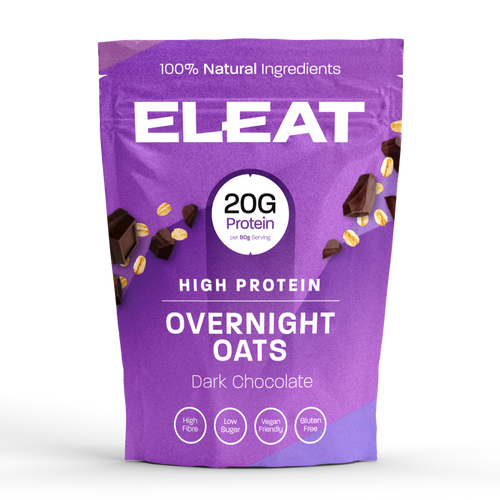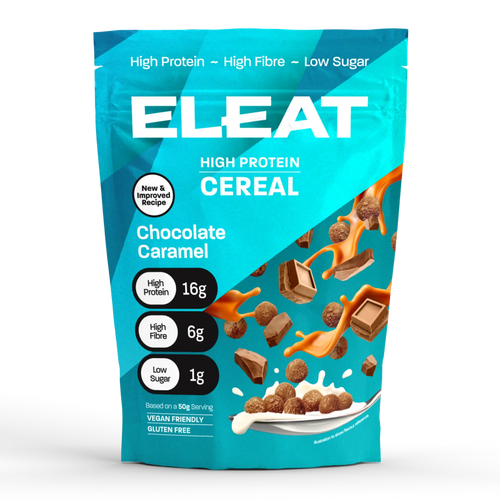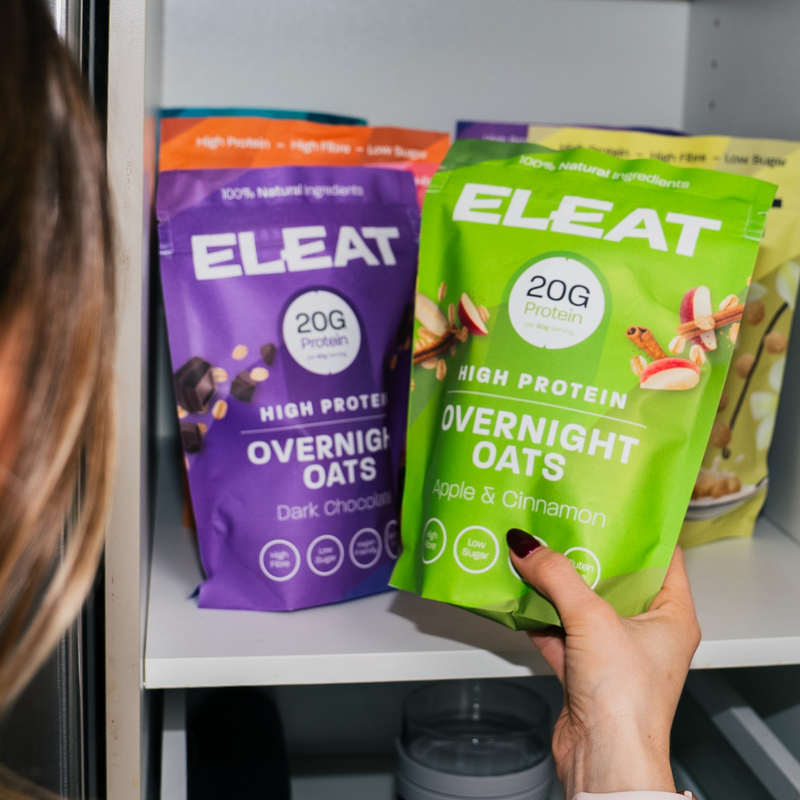In this article:
Your gut is more than just a digestive organ, it’s a control centre for your immune system, mood, and overall health. With trillions of bacteria residing in the gastrointestinal tract, the balance of these microorganisms plays a vital role in how well your body functions. Probiotics, which are live beneficial microbes, have gained attention for their ability to support this balance. As people look for natural solutions to digestive problems like bloating, constipation, or post-antibiotic discomfort, probiotics have become a go-to remedy.
With so many products claiming to improve gut health, knowing what works and why can feel overwhelming. This blog will guide you through what probiotics are, the benefits they offer for digestion, and the best strains to consider based on scientific research. By the end, you’ll have a clearer picture of how to choose a probiotic tailored to your needs and how to support it with lifestyle choices for lasting gut health.
What Are Probiotics?
Live microorganisms with proven health benefits
Probiotics are live bacteria and yeasts that are good for you, particularly your digestive system. They're naturally found in fermented foods, and also available as supplements. Once consumed, they can help balance the population of microbes in your intestines.
Strains and function: one size doesn’t fit all
Not all probiotics serve the same purpose. One strain might aid in nutrient absorption, while another strengthens the intestinal lining or reduces inflammation. This is why picking a probiotic by benefit, not just brand, is essential.
The role of prebiotics in probiotic success
To thrive in the gut, probiotics often rely on prebiotics, which are non-digestible plant fibers. These act as food for the probiotics, helping them multiply and colonise more effectively. Together, this duo promotes long-term digestive health.
Key Benefits of Probiotics for Digestive Health
Improving bowel regularity and reducing constipation
Constipation isn’t just uncomfortable, it can lead to toxin buildup, poor nutrient absorption, and chronic bloating. Certain probiotic strains, especially those from the Bifidobacterium family, can help promote regular bowel movements by enhancing intestinal motility and improving the composition of gut flora.
Managing bloating, gas, and abdominal discomfort
Digestive discomfort often stems from an overgrowth of gas-producing bacteria or difficulty breaking down certain food compounds. By restoring microbial balance and improving enzyme activity in the gut, probiotics can reduce fermentation and soothe symptoms like bloating, gas, and mild cramping.
Helping with IBS and other chronic conditions
Irritable bowel syndrome (IBS) affects millions and can be frustrating to manage. While it has no known cure, some probiotics, particularly multi-strain blends including Lactobacillus and Bifidobacterium, have been shown to alleviate core symptoms such as bloating, abdominal pain, and irregular stools. Probiotics may work by modulating gut inflammation, altering gut-brain communication, and improving intestinal permeability.
Supporting recovery after antibiotic use
Antibiotics are lifesaving, but they also tend to eliminate beneficial bacteria along with harmful ones. This disruption can lead to side effects like diarrhoea or long-term microbial imbalance. Probiotics like Saccharomyces boulardii and Lactobacillus rhamnosus GG have shown success in reducing antibiotic-associated diarrhoea and speeding up the restoration of healthy gut flora.
Potential support for leaky gut and SIBO
“Leaky gut” refers to increased intestinal permeability, where particles that shouldn’t escape the gut lining make their way into the bloodstream, potentially triggering inflammation. Some probiotic strains show promise in strengthening the mucosal barrier and reducing inflammation.
However, in cases like SIBO (small intestinal bacterial overgrowth), probiotics should be approached carefully and only under medical supervision, as some strains may exacerbate symptoms.
Top Probiotics for Digestive Health
Lactobacillus rhamnosus GG: the all-purpose gut defender
This strain is one of the most extensively studied and is often used to support digestive health during and after antibiotic use. It survives stomach acid and bile well, making it effective at reaching the lower intestine, where it can promote balance and aid in immune regulation.
Bifidobacterium longum: calming inflammation and regulating motility
Known for its anti-inflammatory properties and its ability to support bowel regularity, B. longum is especially helpful for those dealing with IBS or stress-related digestive symptoms. It can also assist in metabolising complex carbohydrates and synthesising B vitamins.
Saccharomyces boulardii: the probiotic yeast with protective power
This probiotic yeast works differently from bacterial strains. It’s effective in preventing and treating various types of diarrhoea, particularly those related to antibiotics and travel. Because it’s a yeast, it’s not affected by antibiotics and can be taken alongside them for added protection.
Lactobacillus acidophilus: the daily support hero
This widely known probiotic helps maintain a healthy pH in the gut, supports nutrient absorption, and can inhibit the growth of harmful microbes. It’s often found in fermented dairy products and multi-strain supplements and is a good choice for general digestive maintenance.
Multi-strain blends: broad support for complex issues
Some digestive problems involve multiple symptoms and imbalances, which is where a diverse probiotic blend can be particularly effective. These products combine strains that target inflammation, motility, microbial diversity, and immune modulation for more comprehensive support.
Choosing the Right Probiotic for You
Match the strain to your symptoms
Identifying the right probiotic is like choosing the right tool for a specific job. If you’re dealing with diarrhoea after antibiotics, a yeast like Saccharomyces boulardii may be your best bet. If you’re managing IBS, a blend of Bifidobacterium and Lactobacillus strains could offer relief. The more targeted your choice, the better your chances of seeing real results.
Delivery systems and survival rates matter
Many probiotic organisms die before they even reach your intestines, unless they’re properly protected. Look for supplements with enteric-coated capsules or delayed-release technology. These designs ensure more live bacteria survive the journey through stomach acid to the gut.
Pay attention to label transparency
Choose probiotics that clearly list the genus, species, and strain (e.g., Lactobacillus rhamnosus GG, not just “Lactobacillus”). Strain-specific identification often means the product is backed by research. Also, check whether the CFU count is guaranteed “at time of use” rather than “at time of manufacture,” and whether the product requires refrigeration.
Consult your healthcare provider when in doubt
While most people tolerate probiotics well, it’s always wise to check with a healthcare provider, especially if you have a chronic health condition, are pregnant, or are taking medications that affect your immune system.
Natural Ways to Support Your Gut Alongside Probiotics
Eat fermented foods to boost natural intake
Adding fermented foods to your diet is a delicious and effective way to introduce beneficial microbes naturally. Yogurt with live cultures, kefir, kimchi, sauerkraut, and tempeh all contain various strains of probiotics, along with other healthful compounds like enzymes and antioxidants.
Feed your good bacteria with fibre-rich foods
To help probiotics thrive, make sure you’re feeding them with prebiotics, found in fibre-rich foods like garlic, leeks, asparagus, oats, apples, and legumes. These foods don’t just support digestion; they create a thriving environment for your gut flora to flourish.
Lifestyle habits that make a difference
Don’t underestimate the effect of stress, sleep, and movement on your gut. Chronic stress can alter gut permeability and inflammation, while sleep disturbances and a sedentary lifestyle can disrupt microbial balance.
Incorporating exercise, mindfulness, and regular sleep patterns will significantly amplify the benefits of your probiotic regimen.
FAQs
When should you take probiotics, morning or night?
Taking probiotics on an empty stomach is generally ideal, either 30 minutes before a meal or a few hours after eating. This timing helps increase survival through stomach acid. However, some specially coated probiotics can be taken with meals without losing effectiveness.
Are probiotics safe for everyone?
For most healthy adults, probiotics are safe and side effects are rare. However, individuals with weakened immune systems, those recovering from major surgery, or those undergoing chemotherapy should consult a doctor first.
How long before you feel a difference?
Some people notice improvements in as little as 3–5 days, especially when taking probiotics for acute issues like diarrhea. For chronic conditions like IBS or long-term imbalances, results may take several weeks of consistent use. Be patient, gut healing is a process, not an overnight fix.















